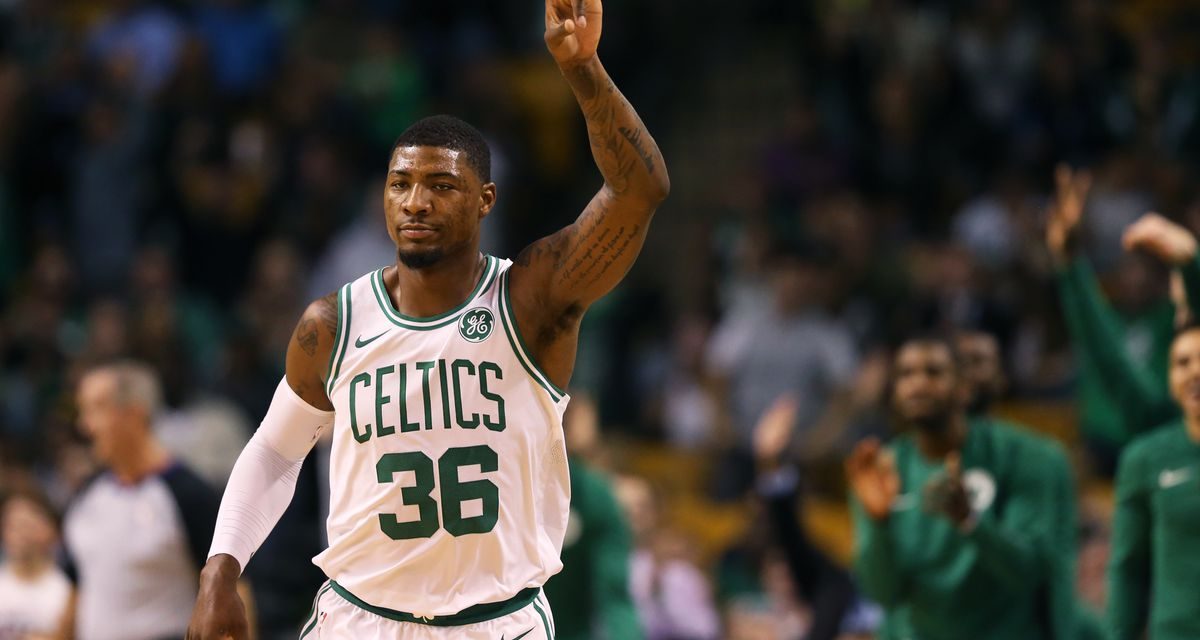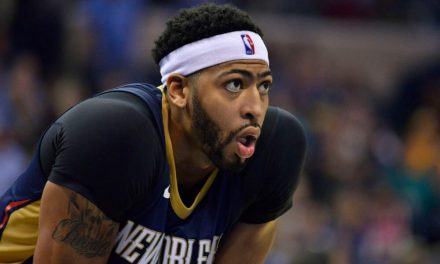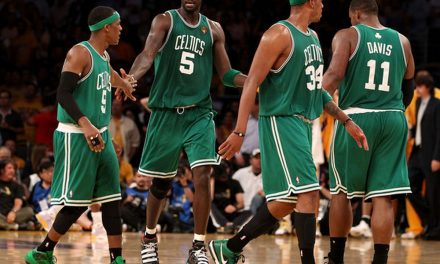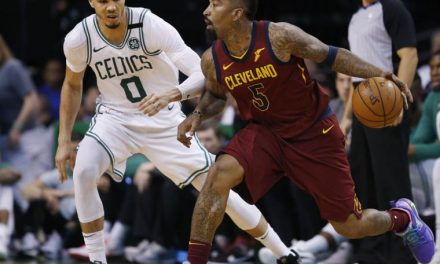Immediately following Boston’s Game 7 defeat at the hands of the Cleveland Cavaliers, Marcus Smart was asked about his future with the team.
Marcus Smart: "I got a lot to think about. There’s a lot of factors that go into it. But that being said, I want to be in Boston. I want to be here. I love this city, I love this team, I love the atmosphere it gives off. I’ve been here for four years. My heart’s here."
— Jared Weiss (@JaredWeissNBA) May 28, 2018
With the Celtics’ season over, the team will shift their focus to free agency. Boston has six upcoming free agents, including Aaron Baynes, Greg Monroe, and Shane Larkin. None of these names are bigger or more controversial than Marcus Smart.
Marcus Smart and his looming free agency has been a topic heavily debated all season long. It is no secret that Marcus wants to get paid like a big time player.
“To be honest, I’m worth more than $12-14 million,” Smart told Jackie MacMullan of ESPN. “Just for the things I do on the court that don’t show up on the stat sheet. You don’t find guys like that. I always leave everything on the court, every game. Tell me how many other players can say that.”
Smart has a point. In his first four years as a pro he has made a name for himself around the league as a bulldog. His propensity to play 110 miles an hour for 48 minutes drives the energy level of his teammates up and gets in his opponents’ heads. When Smart is in the game fans know it. He is usually found on the ground under two or three players scraping for the ball, out-sprinting the fastest guy on the court for a loose ball, or finding a way to rip down a big offensive rebound.
Marcus Smart with that "hustle though, ambition flow" inside his DNA ✊ pic.twitter.com/PcDkI9r2TP
— Celtics on NBC Sports Boston (@NBCSCeltics) May 1, 2018
Off the Stat Sheet
Marcus has a knack for making “game-winning plays” while elevating the effort level and skill of his teammates. Many of his teammates have called Smart the “heart and soul” of the team. Danny Ainge even told Smart that they plan on keeping him.
Marcus Smart said the #Celtics have indicated to him that they plan on him being in Boston next season.
— A. Sherrod Blakely (@ASherrodblakely) May 28, 2018
Why not just pay Smart the $14 million per year?
While the things he does that don’t show up on the stat sheet help the team tremendously, he has major issues shooting and turns the ball over far too frequently. He is a career 36% shooter and an abysmal 29% from three. He also gets off 4.2 three point attempts per game. Among every player in NBA history to have connected on under 30% of three pointers, only 13 of them have shot a higher volume than Smart.
Turnovers have plagued Smart his whole career. He averaged 2.4 per game this season, and 1.8 for his career in 28.7 minutes per game. He ranked 355th in the league in turnovers per game and per 48 minutes (3.8). As great as his non-statistical attributes are, he simply isn’t a $14 million player on the stat sheet.
Money
Boston will extend a qualifying offer to Marcus Smart for $6.1 million dollars. Smart can either sign the offer or see what other offers he can get. Undoubtedly he will wait it out. If the other offers inflate too much, Boston won’t be able to match and Smart will be gone. He can either sign the qualifying offer, take the highest offer on the market, or sign a long term extension with the team well below his self-perceived value.
As much as the team want’s to keep him, they also have a ton of money locked up in future contracts. Al Horford is making $28.9 million next season with a player option he will almost assuredly opt out of. The team’s highest paid player in Gordon Hayward will make $31 million next year. Kyrie Irving is going to get $20 million. Terry Rozier will be a free agent in a few years looking for a big payday. Looking even further ahead, Jayson Tatum and Jaylen Brown will both be getting huge contracts once their rookie deals expire.
With such a loaded roster Boston just doesn’t have the cap space to pay Smart what he wants, no matter how much they desire to retain him. At the end of the day, the decision will rest sorely on his shoulders. Though he has stated that his heart is with Boston, his wallet may ultimately draw him to another team willing to pay a premium for a player with his unique skill set.
If this season does ultimately mark the end of Marcus Smart’s tenure with Boston, he sure left the fans with plenty of fond memories and plays that they will never forget. To his core he has embodied what it means to be a Celtic, and the fans will always love and appreciate everything he gave to the organization.
“I want to be here … I love this city. I love this team. I love these fans.”- Marcus Smart.
Well I couldn’t agree more. I hope to see you in green again next season and beyond! @smart_MS3 ☘️ #CUsRise pic.twitter.com/aVh2OiiAp5
— Dante Turo (@DanteOnDeck) May 28, 2018






